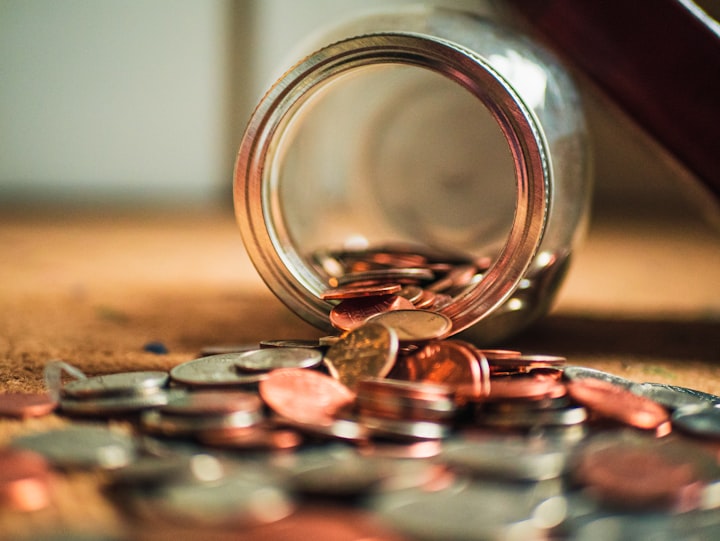A brief history of money
How money was invented and to where it is heading.

Nowadays, everyone uses, wants, dreams, or at least thinks about money. Every day, you buy something new or used, whether you need it or not. Nothing is for free whatsoever. Meanwhile, have you ever asked yourself how it all started? Well, I have. This article is about my quest.
The money took a relatively long and turbulent time till it reached its modern form which itself is keeping to change and mold into new forms every now and then. To understand the history of money we have to travel back in time before pyramids and civilizations, before writing or history, before even money was invented.
Humans started as Nomadic groups of limited numbers of hunters and gatherers who owned almost nothing and lived their lives day by day. No sooner had humans discover agriculture and animals' domestication almost 20000 to 12000 years ago in Mesopotamia (nowadays: Iraq) than they abandoned their nomadic life and started to settle next to their fields and animals forming the first tribes which according to anthropologists consisted of at most of 150 to 200 individuals.
Back then, those tribes were self-sufficient economically as some took care of the fields and others looked after farm animals. Also, there was someone to make shoes and another to tailor clothes and so on. They operated without money in an economic system dependent on favors and collaborations. For example, you're a skillful shoemaker and I am a clever doctor. You will make me a good pair of shoes knowing that when you need me, I will be at your disposal and so forth.
Although this system was so successful during these times, some tribes and villages needed to trade with each other to fulfill their needs of goods that do not exist within their territories. For instance, Village (A) is located on the shores thus depends on fishing while village (B) depends on agriculture. The village (A) will trade some of its fish for some of the crops of the village (b) in a process known as "bartering", Like so like that.
However, this system was sufficient to an extent beyond which it was either difficult or impossible to carry on the trading processes. one of these difficulties was the inability to indicate the exact value of a given item. Moreover, the one who has what you want may or may not need what are offering for exchanging.
So, the need for an impartial system to indicate the prices and who you buy to or from. That is when money started to appear as simple and symbolic objects such as seashells. Objects like seashells are the primordial forms of money. Now, instead of looking for someone who happens to have what you want and need what you have, you buy it from anyone who accepts your way of payment, seashells. Just like that, genius!
Years and centuries pass, and humans advance more and towards a civilized world of major cities, kingdoms, and mighty empires and their tools and ideas advance with them. Money too, changed over time. Instead of seashells, they started to use gold and silver. The problem with gold and silver was that they needed to be weighed each time you are selling or buying and this took a long time as no one likes to be fooled. That led to the need for coins.
The first official coins were minted in Lydia, Asia Minor (nowadays: Turkey) circa 619-580 BC. The importance of these coins was that they were reweighed and ready to hand whenever you wanted to trade with others. This facilitated trading on larger scales between empires and major cities.
Years and centuries continue to pass, empires collapsed, and others were formed. Those empires which came later continued to believe in the importance of money. Each empire, kingdom, religion, and cult adopted the idea by coining money of different shapes and writings. Some commemorate the memory of a victorious king or symbolize the empire's faith and so on.
In the 7th century AD, banknotes appear for the first time in history in Tang dynasty's China. However, they start to be used widely in the 11th century, Song dynasty's China. Back then, banknotes were considered promissory or cheques, that you put your gold and silver money in banks or money houses and use those papers instead.
This idea was introduced to Europe and the rest of the world through European explorers such as Marco Polo in the 13th century. And, in the 1800s, Napoleon issued a banknote in France.
Now, you may ask yourself, how did money manage to have its value? The answer is so simple. Money has value because you and I believe it has, and we are willing to accept it in exchange for our goods and services.
The last century represented a new era in the vast history of money. In 1950, the first credit card was invented and transformed the whole world of economy and money. You no longer have to carry money with you. All you need is a small plastic card. But it did not stop her. In 2008, a group of developers created the first digital or cryptocurrency, Bitcoin, and took the idea of money and trading to the next level.
To conclude, our species is unique because we not only invent objective things but also create marvelous ideas and believe in them. Money is one of these ideas. It had advanced from seashells and flint to gold and silver and from coins to banknotes to credit cards to cryptocurrency and on and on. What we have to learn from this brief history is that it will never stop here, if not at all.
About the Creator
Abdel R. Amin
A 3rd year med student at Zagazig university, Egypt. I am a learning geek who wants to learn about everything, and do you know what is better than learning? Teaching others.






Comments
There are no comments for this story
Be the first to respond and start the conversation.